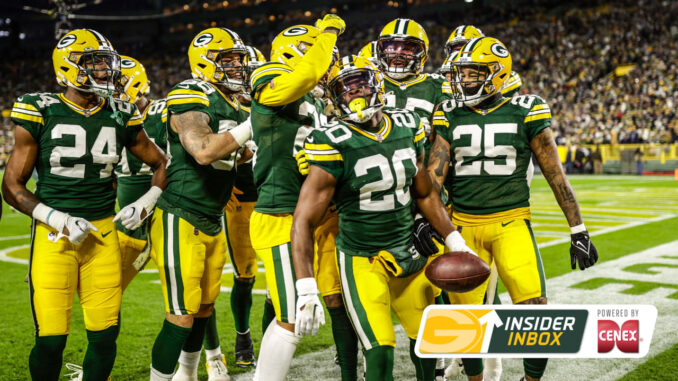
Packers Defender Had A Telling Comment About Former DC Joe Barry
The Green Bay Packers’ defensive unit has experienced a rollercoaster ride in recent years, with much of the scrutiny falling on the shoulders of their former Defensive Coordinator, Joe Barry. This dynamic took a telling turn when a Packers defender made revealing comments about Barry’s tenure, shedding light on the internal perspectives that might have influenced the team’s performance and ultimately led to the organizational changes.
The comment came from a seasoned member of the Packers’ defensive squad, who chose to remain anonymous but expressed sentiments that were likely shared among his peers. The defender highlighted issues with Barry’s defensive schemes and decision-making processes, which, according to him, often left players in positions where they couldn’t fully utilize their strengths. He pointed out that Barry’s approach was sometimes too rigid, lacking the adaptability needed to counteract the diverse offensive strategies they faced week to week.
One of the main criticisms centered on Barry’s conservative play-calling, which many felt was overly cautious. The defender explained that there were numerous instances where the defense was put in a “bend but don’t break” posture, designed to avoid giving up big plays but often resulting in extended drives for the opposition. This approach, while intended to minimize risk, paradoxically increased it by wearing down the defensive unit and limiting opportunities for turnovers or impactful plays.
Additionally, there was a sense that Barry struggled with in-game adjustments. The defender recalled several games where the opposition’s offensive coordinators effectively countered the Packers’ initial defensive setup, but the adjustments from Barry were either too slow or ineffective. This inability to quickly pivot and respond to evolving offensive strategies left the defense vulnerable and often led to critical breakdowns, particularly in high-stakes situations.
The defender also touched on the communication and trust issues within the unit under Barry’s leadership. There were instances of misalignment between what was practiced and what was executed on game day, leading to confusion and lapses in coverage or run defense. This lack of cohesion, he suggested, stemmed from a disconnect between Barry’s vision and the players’ execution, an issue exacerbated by the perceived lack of input from the players in the strategic discussions.
Despite these criticisms, the defender did acknowledge that Barry had moments where his schemes were effective and his strategies paid off. However, these instances were not consistent enough to sustain a high level of defensive performance over the course of a season. This inconsistency was a major factor in the team’s decision to part ways with Barry and seek new leadership that could bring a fresh, adaptable approach to the defense.
In reflecting on Barry’s tenure, the defender’s comments paint a picture of a coaching tenure marked by good intentions but ultimately undermined by inflexibility and a disconnect between the coordinator and his players. This candid insight not only helps explain some of the struggles the Packers faced defensively but also underscores the importance of adaptability, communication, and trust in crafting a successful defensive strategy in the NFL. As the Packers move forward, these lessons will be crucial in building a more resilient and cohesive defensive unit under new leadership.
Be the first to comment